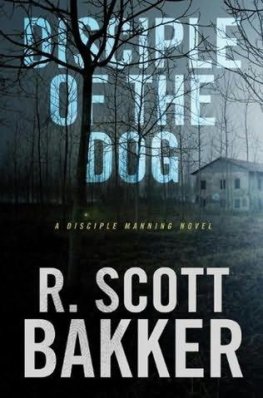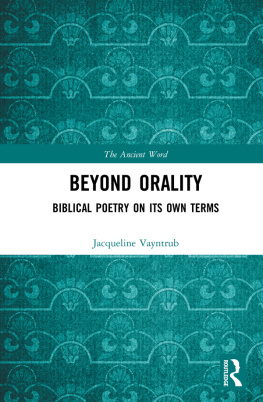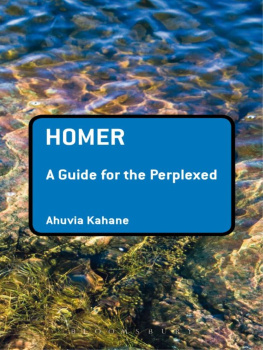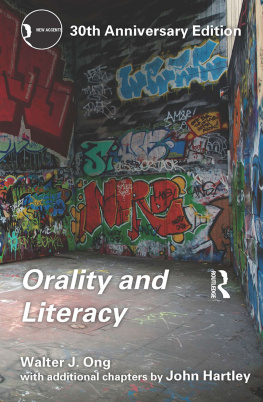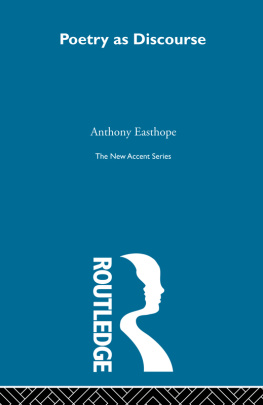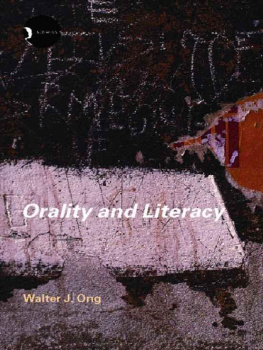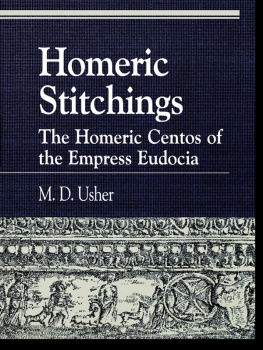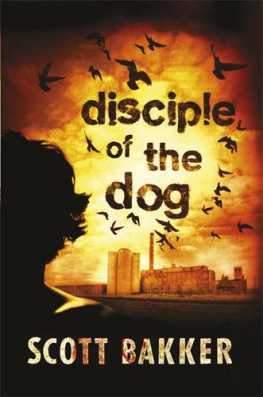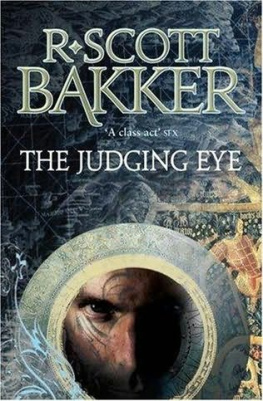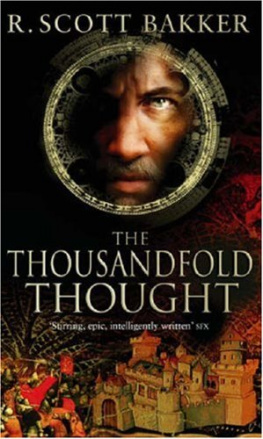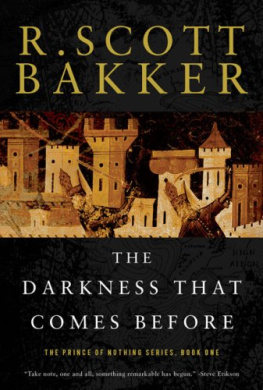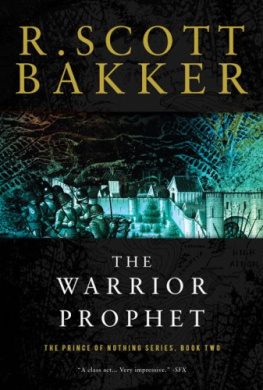Bakker - Poetry in speech orality and Homeric discourse
Here you can read online Bakker - Poetry in speech orality and Homeric discourse full text of the book (entire story) in english for free. Download pdf and epub, get meaning, cover and reviews about this ebook. City: Ithaca, year: 1997;2018, publisher: CORNELL UNIVERSITY PRESS, genre: Home and family. Description of the work, (preface) as well as reviews are available. Best literature library LitArk.com created for fans of good reading and offers a wide selection of genres:
Romance novel
Science fiction
Adventure
Detective
Science
History
Home and family
Prose
Art
Politics
Computer
Non-fiction
Religion
Business
Children
Humor
Choose a favorite category and find really read worthwhile books. Enjoy immersion in the world of imagination, feel the emotions of the characters or learn something new for yourself, make an fascinating discovery.
- Book:Poetry in speech orality and Homeric discourse
- Author:
- Publisher:CORNELL UNIVERSITY PRESS
- Genre:
- Year:1997;2018
- City:Ithaca
- Rating:3 / 5
- Favourites:Add to favourites
- Your mark:
- 60
- 1
- 2
- 3
- 4
- 5
Poetry in speech orality and Homeric discourse: summary, description and annotation
We offer to read an annotation, description, summary or preface (depends on what the author of the book "Poetry in speech orality and Homeric discourse" wrote himself). If you haven't found the necessary information about the book — write in the comments, we will try to find it.
Bakker: author's other books
Who wrote Poetry in speech orality and Homeric discourse? Find out the surname, the name of the author of the book and a list of all author's works by series.
Poetry in speech orality and Homeric discourse — read online for free the complete book (whole text) full work
Below is the text of the book, divided by pages. System saving the place of the last page read, allows you to conveniently read the book "Poetry in speech orality and Homeric discourse" online for free, without having to search again every time where you left off. Put a bookmark, and you can go to the page where you finished reading at any time.
Font size:
Interval:
Bookmark:

Gregory Nagy
Many of the books in the Myth and Poetics series center on the power of myth to make language special or specially formal: when language is stylized by myth, it becomes a cultures poetry or song. Egbert Bakkers Poetry in Speech approaches myth and poetics from another direction, asking how myth is shaped by poetics and, just as important, how poetics are conditioned by everyday language, language as it is actually spoken. Bakker calls everyday language speech , distinguishing it from the special languages of song or poetry (or even prose), and the word is aptly chosen, since the range of its meanings in contemporary English recapitulates the tendency of everyday language to become special in special contexts. In neutral contexts, as when we speak of the human capacity for speech , the word applies by default to any language situation; in special contexts, however, as when we speak of a speech delivered before an audience, the word refers to a special kind of discourse.
The criterion of everyday speech, it is essential to stress, is a cultural variable, depending on the concrete realization of whatever special speech or discourse is being set apart for a special context. In traditional societies, as the books in the Myth and Poetics series have argued in a variety of ways, the setting apart of such special discourse would normally happen when a ritual is enacted or when a myth is spoken or sung. The language of Homer is a prime example of such special discourse, as Richard P. Martin vividly demonstrated in the first book of this series, The Language of Heroes: Speech and Performance in the Iliad Homeric discourse is most sharply set apart from the reality of everyday language, no matter how we may reconstruct this reality for any particular time and place in ancient Greece, by its metrical and formulaic dimensions. Bakker traces these dimensions, which for Milman Parry and Albert Lord mark the orality of Homeric discourse, back to their sources in everyday languagea genealogy expressed in the books full title, Poetry in Speech: Orality and Homeric Discourse.
Bakker has shifted the emphasis: poetry that is oral is in fact speech that is special, stylized by meter and formula. To put it negatively: it is not the absence of writing that makes oral poetry special. Nor is it the orality of oral poetry that makes it special, as if oral were a special category within a body of poetry that we generally experience in written form. From an anthropological point of view, poetry in and of itself is special speech. The real working opposition is the one between special speechwhether it be song or poetry or proseand the everyday speech from which it derives. That derivation does not imply a binary distinction, of course, and the continuum that runs between everyday language and the varieties of special speech can be extended to include written texts. Speech that is written, because of the stylization involved, sometimes has a better claim to the special distinction than do any oral examples of special speech.
Understanding our inherited Homeric text as the reflex of a special language, Bakker transcends purely literary interpretation, refusing to be tied down by presuppositions of a text originally composed in writing and written in order to be read. In analyzing the principles of Homeric composition, he shows us how to rethink even the concept of the sentence and of the period, its classical analogue. Only in a text-bound approach, Bakker argues, can the sentence be considered the basic unit of speech. Following the methods of the linguist Wallace Chafe, he reassesses the building blocks of speech in terms of the speakers cognitive system as it actually operates in the process of speaking. Chafe resists the artificial super imposition of literate grammar on the analysis of everyday language. Bakker frees his own analysis of Homeric discourse from such superimpositions and defamiliarizes our textbound mental routines in the reading of archaic Greek poetry.
Bakkers arguments about the shaping of the metrical and formulaic system of Homeric discourse by the everyday speech from which it is derived open many avenues for future research, particularly into the regulation of speech by this system at the posited moment(s) of performance in an oral tradition. The poetics of recomposition-in-performance, which are reflected in the patterns of wording and word placement within the fundamental rhythmical unit of the dactylic hexameter, can now be further examined from both synchronic and diachronic perspectives. Bakkers own explorations of these questions mark a monumental advance in our understanding of Homeric discourse as a linguistic system. A striking example is his success in explaining the syntactic functions of Homeric particles like mn, mn, d, d, toi, ra/rh, gr, autr/atr, ka, all, n. In the wake of Bakkers analysis, the classicist cannot help but read the Greek of Homer differently: the readers understanding of practically every verse is affectedand enhanced.
A vital question remains: why exactly is there a need for a special discourse in the self-expression of myth? The answers, which vary from culture to culture, have to do with the special contents of myth itself, which require special forms for their expression. In the case of Homeric discourse, as Bakker shows in minute detail, such answers can be found in the actual usage of the discourse itself. A case in point is the system of noun-epithet formulas. Through these formulas, as also through the deployment of evidential particles, Homeric discourse represents itself as the verbalization of a heroic world that is literally visualized by those very special agents of divine memory, the Muses. Whatever Homeric poetry sees through the Muses who witness the epic past becomes just as special as whatever it says through the Muses who narrate what they saw (and heard) to Homer. Homeric vision, as expressed by the metrical and formulaic system of Homeric discourse, claims to be something far greater than mere poetic imagination. The blind bards inner vision becomes the ultimate epiphany of the heroic past.
For Petra
The activities leading up to this book have taken some years, and it is a pleasure to express my gratitude for the help and support I received from people and institutions along the way. I have fond memories of a stayone of the many pleasant things made possible by a Fellowship of the Royal Netherlands Academy of Arts and Sciencesat the University of California, Santa Barbara, where I was a guest at the National Humanities Center in 1990. I profited from seminars on discourse analysis in the Linguistics Department, particularly those given by Wallace Chafe and Sandra Thompson, who also kindly read the embryonic proposals on Homeric speech that I produced at the time.
At a later stage, I had the privilege of spending part of the academic year 199192 at the Netherlands Institute for Advanced Studies (NIAS), where I wrote the earliest version of what is now Part 1. At NIAS the project benefited from my participation in an interdisciplinary theme group, Orality and Literacy. To some of the participants in particular I owe a debt: to Franz Buml (University of California, Los Angeles) for opening up the discussion of orality and literacy in the Middle Ages for me, and to David Rubin (Duke University) for his comments on my work from the standpoint of cognitive psychology.
In 199293 I was among the Fellows at the Center for Hellenic Studies, Washington, D.C., a stay that was made possible by a grant from the Netherlands Organization for Research. During this most pleasant and fruitful year I not only had the opportunity to work on earlier versions of what are now Chapters 3 and 6 through 8, but also to present my ideas to a number of patient audiences: the Directors and the Fellows at the Center for Hellenic Studies, as well as audiences at Columbia, Brown, Yale, Harvard, and Duke Universities. I thank Suzanne Sad, Alan Boegehold, Victor Bers, Gregory Nagy, and Keith Stanley for their invitations to present my ideas in their departments.
Next pageFont size:
Interval:
Bookmark:
Similar books «Poetry in speech orality and Homeric discourse»
Look at similar books to Poetry in speech orality and Homeric discourse. We have selected literature similar in name and meaning in the hope of providing readers with more options to find new, interesting, not yet read works.
Discussion, reviews of the book Poetry in speech orality and Homeric discourse and just readers' own opinions. Leave your comments, write what you think about the work, its meaning or the main characters. Specify what exactly you liked and what you didn't like, and why you think so.


